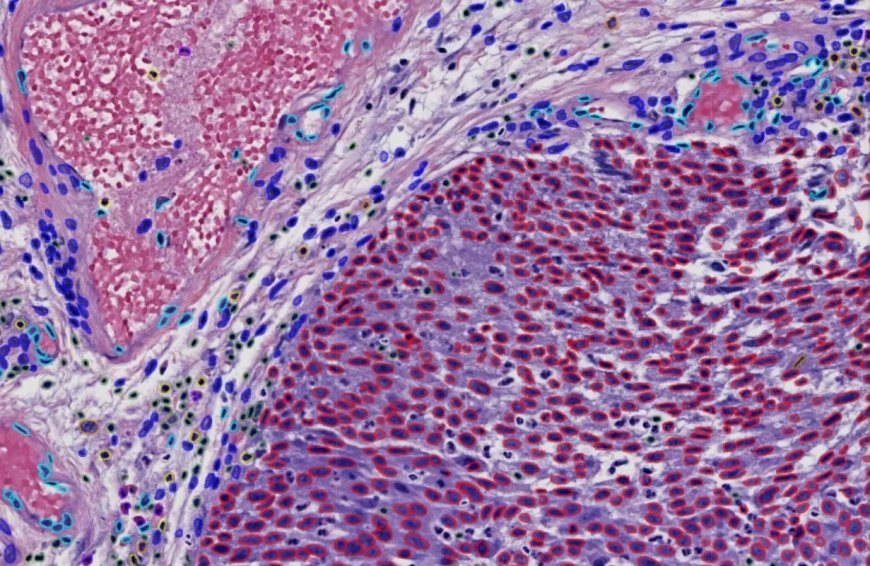Valar Labs’ AI Innovation Transforms Cancer Treatment Predictions
Explore Valar Labs’ AI breakthrough in predicting cancer treatment outcomes. Learn how their tool Vesta is revolutionizing oncology care and secured $22M for expansion.

Navigating the complexities of AI in healthcare, particularly in oncology, Valar Labs has introduced a pioneering tool that forecasts treatment outcomes with remarkable accuracy, offering hope and saving time for patients. With a recent $22 million funding boost, the biotech startup is poised to broaden its impact across various cancers and treatments.
Cancer treatments are diverse, and while established protocols exist, they often require enduring months of therapy before assessing their effectiveness. Valar Labs, however, is changing the game with its AI-powered tool, Vesta, which predicts the efficacy of treatments like BCG therapy for bladder cancer—a standard yet uncertain first-line treatment.

Example of a processed histology slide — if you look closely, you can see individual features and cells outlined.
Image Credits: Valar Labs
The inception of Valar Labs occurred at Stanford, where the founders were exploring AI’s role in enhancing clinical decision-making. CEO Anirudh Joshi and his team recognized the need for clarity in treatment plans, where often, a trial-and-error approach prevails. Vesta aims to replace uncertainty with informed decisions, sparing patients from ineffective therapies.
Vesta’s development involved collaboration with global medical centers, analyzing over a thousand patient cases to understand the nuances of therapy responses. The tool comprises two innovative components: a visual AI trained on extensive histology images, providing insights into the cellular dynamics of tumors, and a machine learning algorithm that refines its predictive accuracy with each patient interaction.
Valar Labs’ commitment to augmenting, not replacing, pathologists’ expertise is evident in their approach, offering a ‘smart microscope’ that aids precise analysis of cellular structures and immune responses. The technology’s adaptability across various cancers underscores its potential to transform oncology diagnostics.
While Vesta currently focuses on individual speakers and requires an unobstructed auditory path, the clarity it provides is unparalleled. Valar Labs’ AI models outshine traditional predictive factors, offering a new layer of data for doctors and reassurance for patients.
Founded in 2021, Valar Labs has dedicated itself to perfecting Vesta for bladder cancer patients undergoing BCG therapy. The tool identifies individuals at a higher risk of non-response, potentially guiding alternative therapeutic strategies. This capability not only conserves valuable treatment time but also instills confidence in patients and caregivers alike.
With the successful closure of a $22 million Series A funding round, led by prominent investors like DCVC and Andreessen Horowitz, Valar Labs is set to commercialize Vesta and extend its benefits to additional cancer types. Embracing a commercial lab model, the company aspires to integrate seamlessly into the health system, reducing costs and eliminating ineffective treatments.
Valar Labs’ AI innovation marks a significant stride in personalized medicine, offering a beacon of hope in the complex journey of cancer care.
What's Your Reaction?


































































